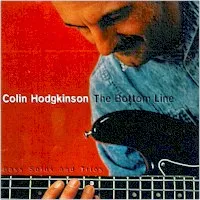Styles: Vocal Jazz
Year: 2010
File: MP3@320K/s
Time: 49:29
Size: 114,0 MB
Art: Front
(5:04) 1. I Sing In Blue
(5:20) 2. Both Sides Now
(5:07) 3. Softly As In a Morning Sunrise / Little Sunflower
(3:47) 4. Detour Ahead
(2:36) 5. Convenient Distraction
(3:13) 6. Blackberry Winter
(4:15) 7. Where is Love
(4:10) 8. And When I Die
(6:02) 9. Kiss
(4:15) 10. Begin Again
(5:35) 11. He's Gone Away/Willow Weep For Me
What do you get when you mix one part Lizz Wright, one part Alyssa Graham and a dash of Chiara Civello? The answer is vocalist Danielle Eva. Eva's music could be characterized as roots-infused jazz with a pop spin on the production, but plenty of other influences seep into the mix. A large cast of musicians joins her for Road and Moon her own personal travelogue and her diverse tastes are reflected in the songs she chooses to cover. Female singer-songwriters are represented with Joni Mitchell's "Both Sides Now" and Laura Nyro's "And When I Die." The former leans towards the pop side, with Federico Pena Gonzalez contributing some fine piano work. The latter moves in a country-folk direction, gaining authenticity through Dave Gingrich's delightful dobro work. While Mitchell's music has become a given for female jazz vocalists, Nyro's music rarely crosses style lines and Eva's performance makes a compelling argument for a greater need to mine her catalog. Alec Wilder's "Blackberry Winter," a spine-tingling, under-performed piece that's seeing a comeback thanks to people like vocalist Hilary Kole and Eva, is the most engaging, intimate performance on the album. Eva's voice and Gavin Fallow's bass go it alone, and the resulting music is stunning.
Eva is equally compelling during the first, a capella, portion of "He's Gone Away/Willow Weep For Me." With all instrumental adornments removed, Eva comes across like a sultry Appalachian siren. When violin, acoustic bass and guitar enter, the music moves towards a backwoods folk-jazz that is relaxed, yet luxuriant. "Where Is Love" might seem more natural as cabaret fodder than jazz-pop, but is beautifully rendered. Eva's arrangement, recasting it in five, is well-suited to the song, and her vocals exhibit a sense of longing that often seems absent from other takes on this tune. The only misstep comes with a keyboard solo that has a less-than-desirable faux-woodwind sound. The same goes for the solo on Eva's otherwise-enjoyable Latin-leaning album opener, "I Sing In Blue." The penultimate performance of "Begin Again" which has a hip "Higher Ground" meets Graceland era Paul Simon groove (Warner Bros, 1986), bookending an expansive middle section is the most original sounding of Eva's own compositions. Across eleven tracks, Road And Moon presents pictures of love, longing, sadness, joy and the world-at-large, delivered with class by Eva's gorgeous voice. ~ Dan Bilawsky http://www.allaboutjazz.com/road-and-moon-danielle-eva-devour-music-review-by-dan-bilawsky.php
Personnel: Danielle Eva: vocals; Lenny Robinson: drums, percussion (1-4, 7-9, 11); Federico Pena Gonzalez: piano, keyboards (1-4, 7, 9); Gavin Fallow: acoustic bass, electric bass (1-3, 6, 7, 9, 11); Michael Bowie: acoustic bass (4, 8); Alvin White: guitar (2, 3, 7); Chuck Underwood: guitar (1, 9, 11); Bob Spates: violin (11); Dave Chappell: electric guitar (8); Dave Gingrich: dobro (8); Dan LaVelle: guitar (5); Rickard Malmsten: fretless bass (5); Anthony Fernandes: percussion (5); Bilal Karaman: guitars (10); Ozan Musluoglu: electric bass (10); Ferit Odman: drums (10).








